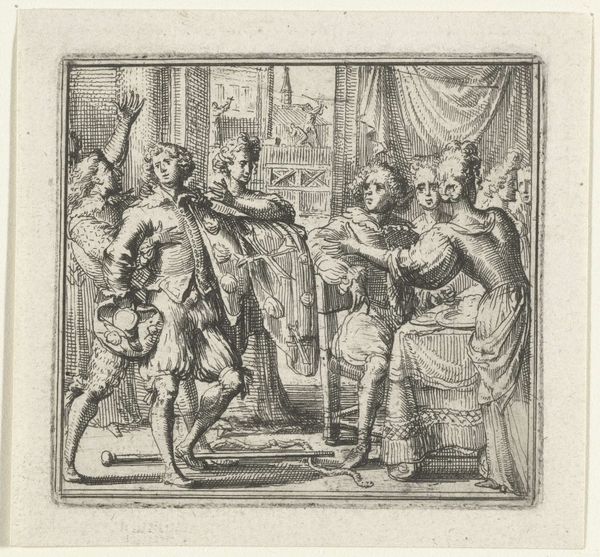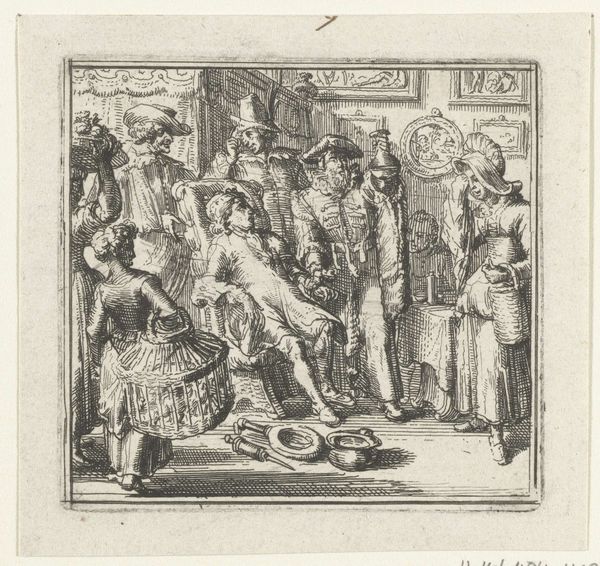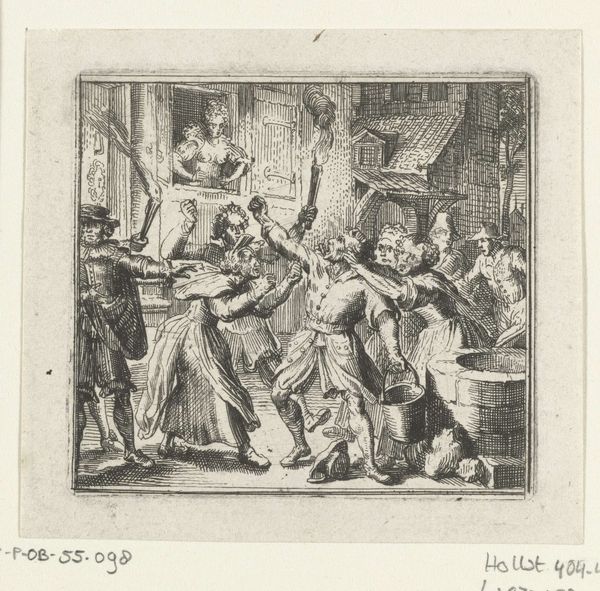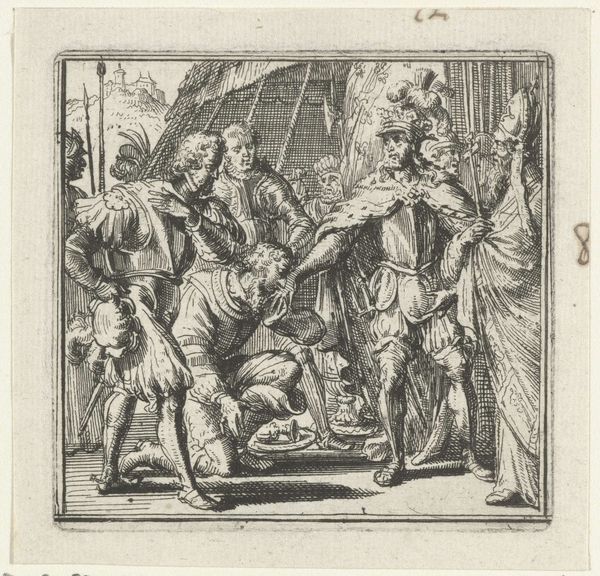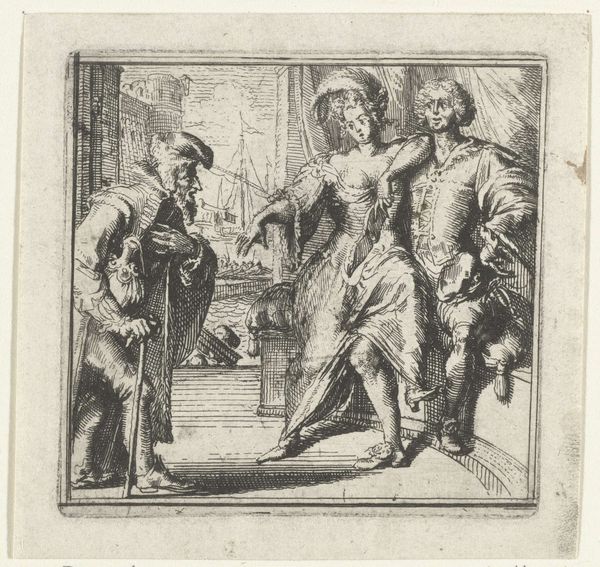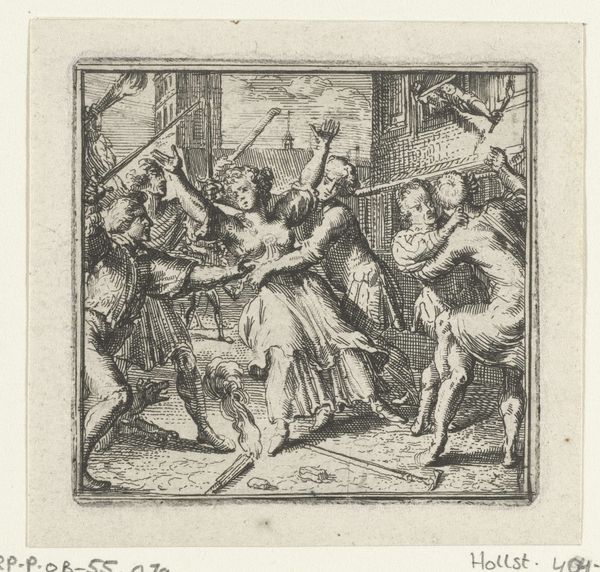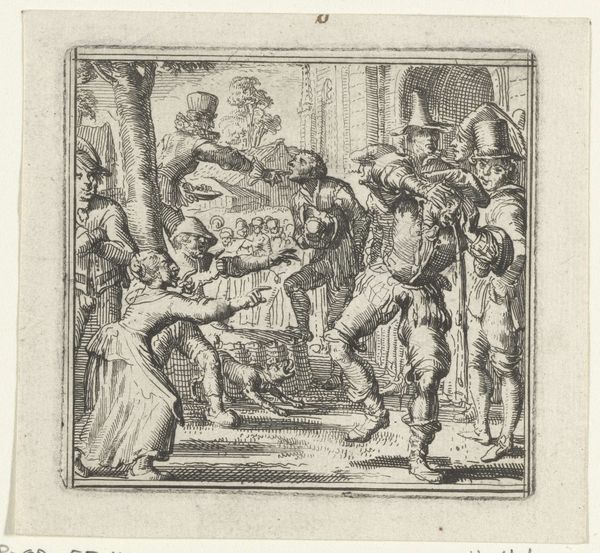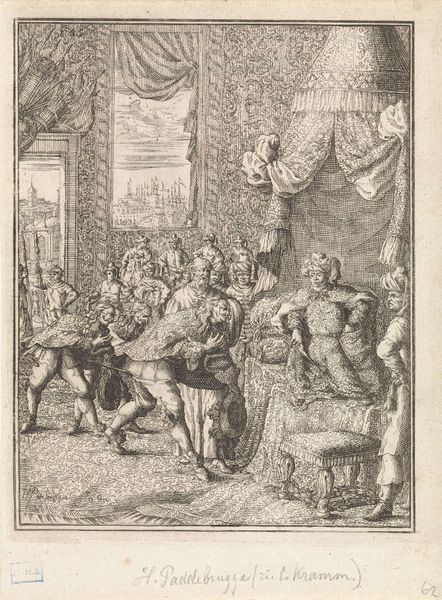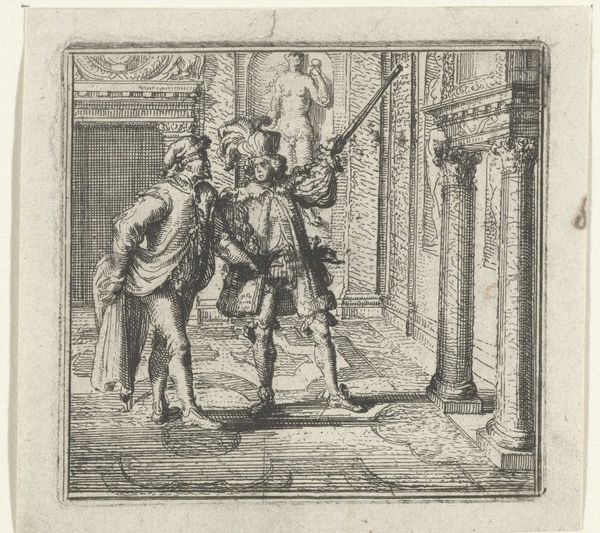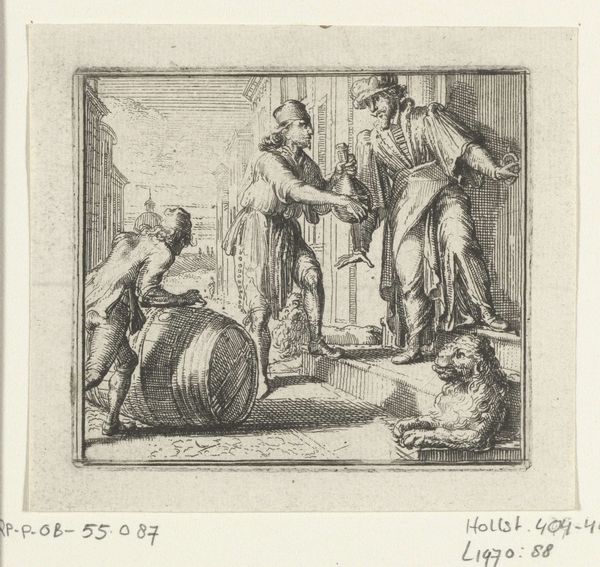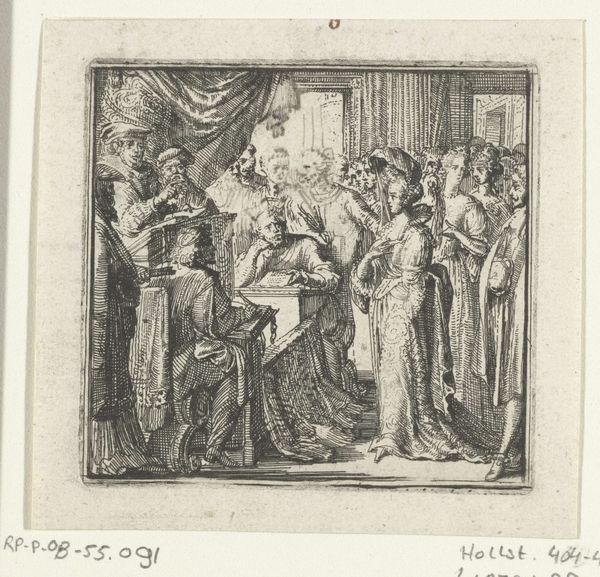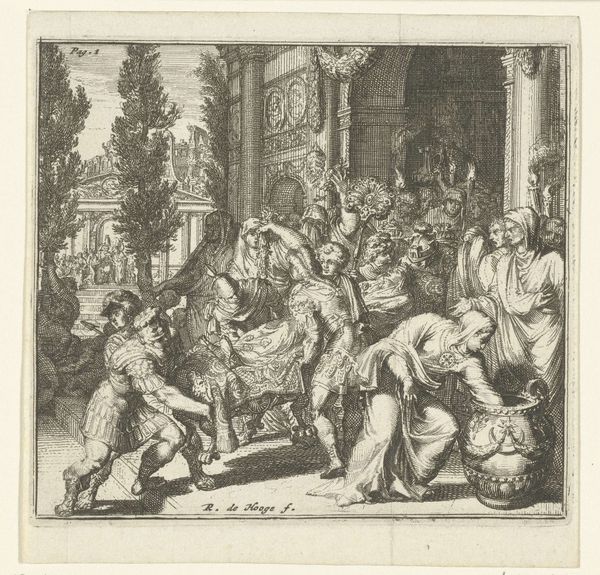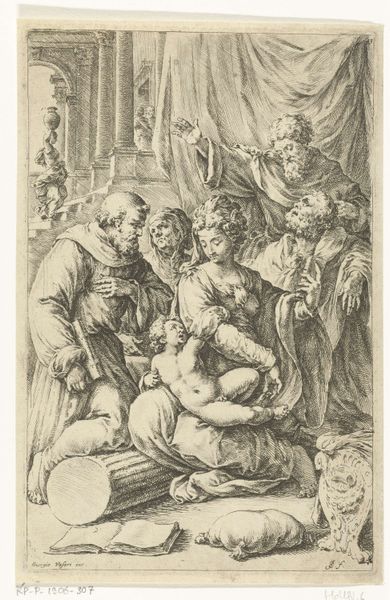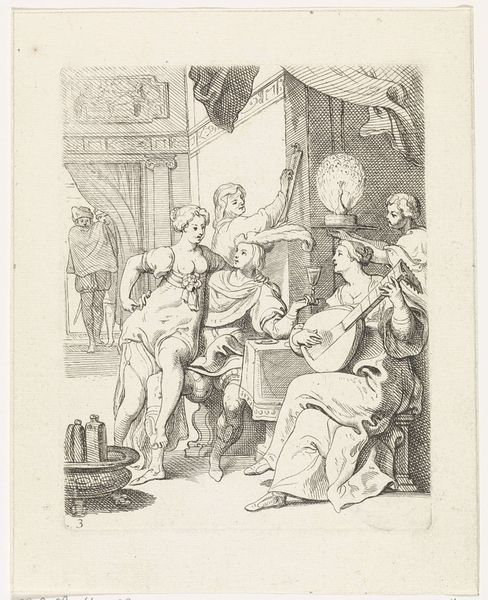
drawing, print, etching, ink, engraving
#
drawing
#
comic strip sketch
#
aged paper
#
narrative-art
#
baroque
#
mechanical pen drawing
# print
#
pen illustration
#
pen sketch
#
etching
#
old engraving style
#
figuration
#
personal sketchbook
#
ink
#
sketchwork
#
pen-ink sketch
#
pen work
#
genre-painting
#
history-painting
#
engraving
Dimensions: height 77 mm, width 78 mm
Copyright: Rijks Museum: Open Domain
This illustration for Boccaccio’s Decameron was made by Romeyn de Hooghe, a Dutch artist, most likely in the late 17th century. The scene depicts a tense exchange within an ornately decorated interior. The clothing of the characters gives a sense of wealth, but the artist’s medium – etching – was more suited to popular printmaking than luxury book illustration. De Hooghe was a prolific and versatile artist who worked across different genres and styles, often engaging with the political events of his time. The Decameron, written in plague-ridden Florence in the mid-14th century, is a collection of novellas, some of which were considered scandalous. What might it have meant for a Dutch artist, working in a very different time and place, to revisit these stories, and for what kind of audience? In attempting to answer this question, a historian might examine not only the imagery of the artwork, but also the history of books, Dutch printmaking, and the cultural reception of Boccaccio's work.
Comments
No comments
Be the first to comment and join the conversation on the ultimate creative platform.
